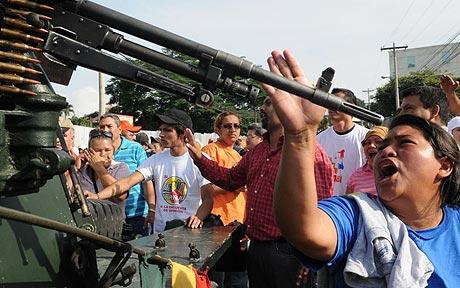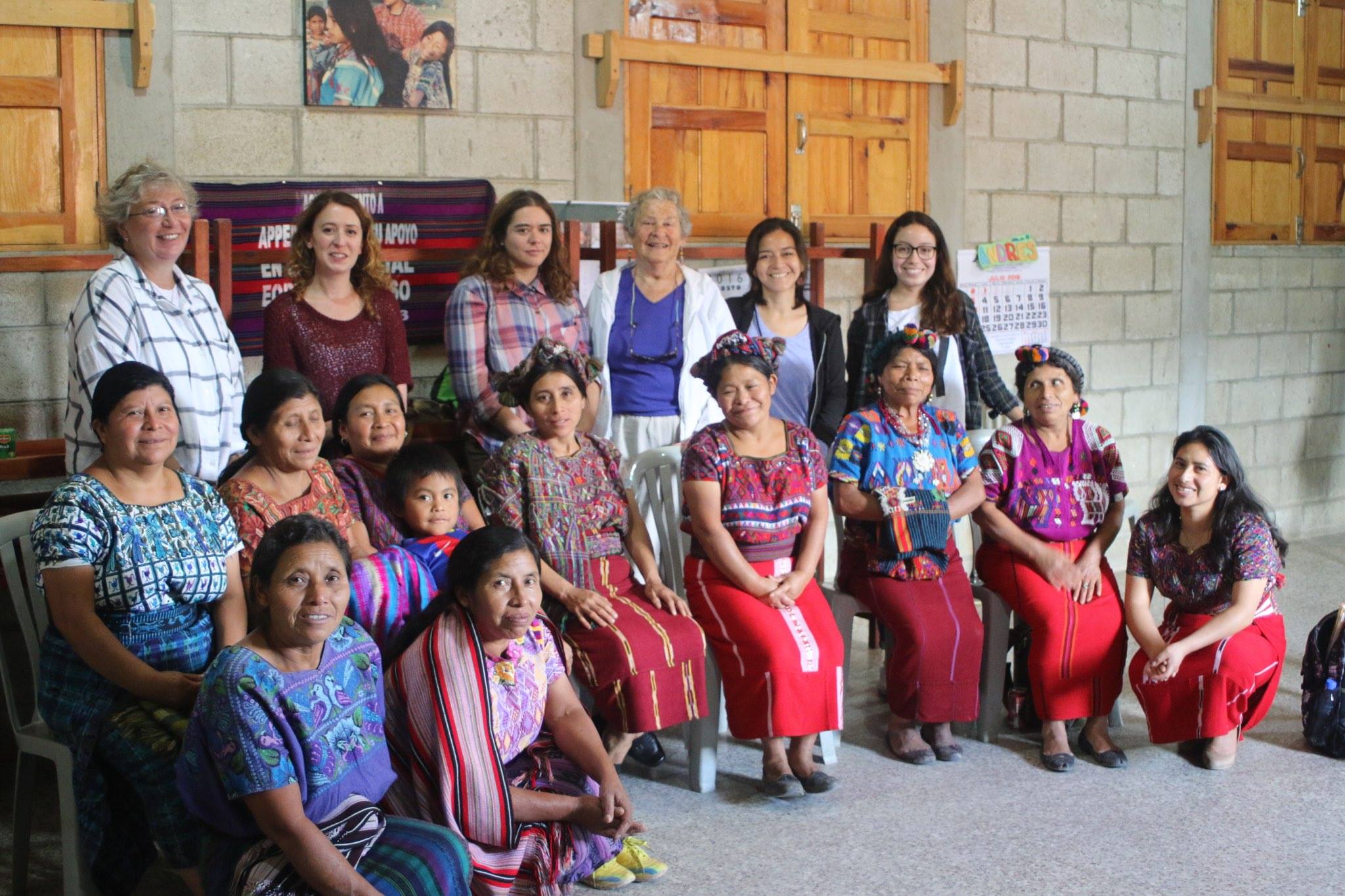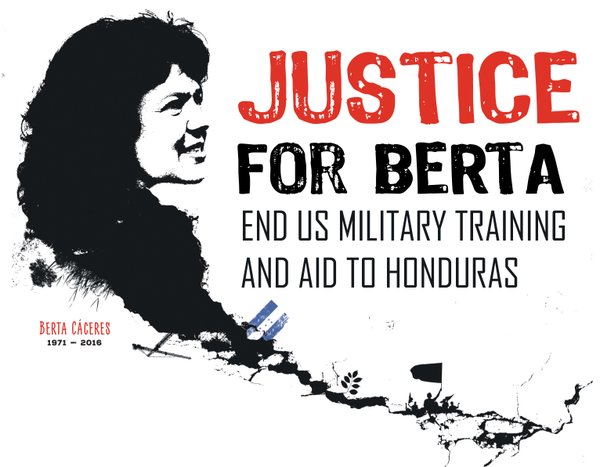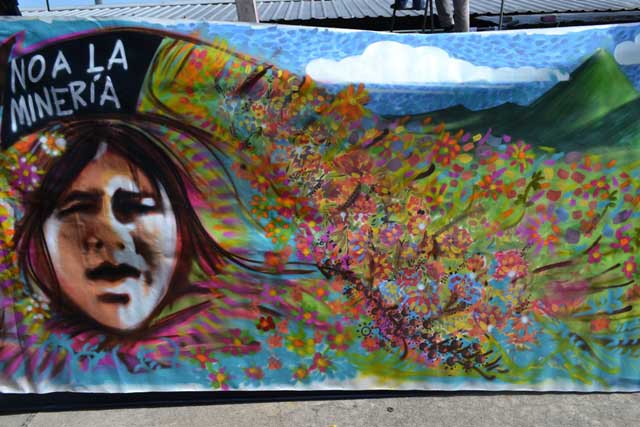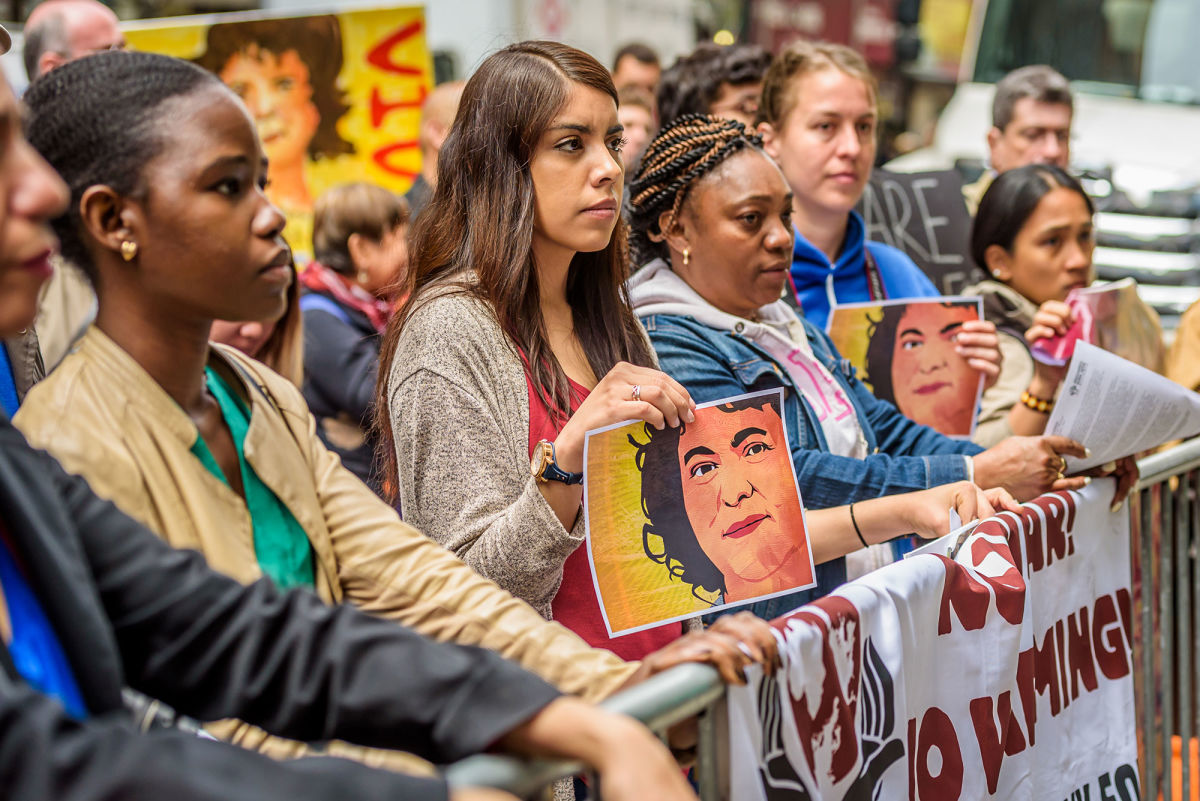Delegation to Meet with Social Justice and Human Rights Organizations
Since the June 2009 military coup in Honduras, CRLN members have partnered with local and national organizations to work to restore democracy to Honduras. Two of those local partners,
La Voz de los de Abajo
and
Casa Morazan
are organizing a weeklong delegation to Honduras, to build ties with Honduran organizations working on behalf of social justice. Join us – to hear directly from human rights leaders in Honduras so that we are equipped to advocate for just US policies.
The coup in Honduras, led by a graduate of the US’s School of the Americas program, has led to the deaths of human rights and social justice leaders in Honduras and called into question the US’s commitment to democracy in this hemisphere. The cost of the delegation is $1,200 including airfare. Please prayerfully consider joining us on this delegation and working with us upon your return to advocate for policies that will encourage restoring democracy in Honduras.
For more information, call 773-293-2964
.
Recent CRLN Webstories on Honduras
https://www.crln.org/Condemn_Military_Coup
https://www.crln.org/Honduran_Coup_Tom_Loudon_Report
https://www.crln.org/Honduran_consulate
Summary of Delegation from La Voz de los de Abajo and Casa Morazan
For more than 2 months, the Honduran people and their
organizations have surprised the world with their sacrifice and bravery in
mobilizing daily in resistance to the coup of June 28. In response to the call from social organizations and the
Honduras National Front Against the Coup, La Voz de los de Abajo and Casa
Morazan is organizing a week-long delegation to Honduras, with the overall goal
of building a solidarity movement supporting the social justice movement in
Honduras and strengthening ties between U.S. organizations and activists and our
counterparts in Honduras.
There is limited space on the delegation. We are looking for
people involved in solidarity work, media, cultural work, trade union and
workers’ rights, healthcare, immigrant rights and others who are interested in
learning directly about the situation in Honduras and willing to help bring
information about the Honduran people’s movement to the U.S.
The delegation will meet with organizations that are
participating in the National Front Against the Coup and with human rights and
alternative media organizations. The National Front Against the Coup is the
coordinating organization for all the organizations in the country that are
resisting the coup. It holds regular general assemblies in which decisions are
made for resistance activities. Below is an introduction to some of the organizations that our delegation will have the opportunity to meet and to talk with.
The Central Nacional
de los Trabajadores del Campo (CNTC) The National Center for Rural
Workers
is one of the largest
and most active campesino base organizations in Honduras. It was founded in 1985
when 5 campesino groups joined together to build an organization dedicated to
the struggle for land for the landless and poorest farmers. It
organizes not only for land, but also for access to healthcare, education,
housing and other basic services. The CNTC has affiliated communities in most of
the 18 departments (states) of Honduras. It was one of the few campesino
organizations to publicly oppose U.S. intervention in Central America during the
1980’s and it has continued to take progressive positions on international and
national social justice issues. Because of its work in the
countryside its communities and leaders have frequently been targets for
governmental and landowner repression. The CNTC is a member of the Popular
Block, the National Coordinator for Popular Resistance and since the June
28 coup it has been an active participant in the National Front
Against the Coup (Frente Natcional en Contral el Golpe).
El Comite de Familiares de los Desaparecios en Honduras
(COFADEH) The Committee of the Families of the Disappeared in Honduras
was rounded on November 30, 1982 in Tegucigalpa. COFADEH is a center for moral
and political resistance to the abuses of government and an organization for the
defense and promotion of human rights. Its objectives are to fight against
impunity; to use the law and justice to end the practice of politically and
ideologically motivated forced disappearance of persons; to contribute to the
protection of the full application of human rights and to maintain alive the
collective memory of the past.
El Consejo Cívico de Organizaciones Populares e
Indígenas de Honduras (COPINH) The Civic Council of Popular and Indigenous
Organizations of Honduras
is an activist indigenous organization in the
southwestern region of Honduras with national reach. It was founded in March of
1993 to fight for the recognition of and achievement of political, social,
cultural and economic rights for the indigenous peoples in Honduras. It is also
a center for analysis of the regional and national conditions with the aim of
developing actions and proposals on an ongoing basis for the achievement of its
goals. COPINH is an active member of the Popular Block, National Coordinator of
Popular Resistance and it is an active member of the National Front Against the
Coup.
La Central General de Trabajadores
(CGT) The General
Workerr’ Center is one of the union
centersin Honduras. It was formed in 1970 and has aroudn 120 thousand affiliated
workers. The CGT is one of the few workers’ organizations to survive through the
decade of the 1980’s which saw the most cruel and bloody refpression against the
working class and the other diverse organized sectors of the people. The CGT is
one of the largest organizations active in the National Front Against the Coup.
The organization LOS NECIOS
is a political organization working for radical change in the dominant and unjust
social and economic structures in order to build a different society. The
organization is centered in Tegucigalpa and is composed of members, mainly
youth, from different sectors who are committed to social transformation.
The Necios’ political activity is organizing in diverse social sectors,
political education and ongoing analysis of the national reality. Much of their
work is also in alternative media. The Necios organization was a member of the
National Coordinator of Popular Resistance prior to the coup.
Colegio de Profesores de Educación Media de Honduras
(COPEMH) The College of Secondary School Professors of
Honduras
is the organization of
all the high school teachers in the country. Teachers have played an extremely
crucial role in Honduran society and COPEMH is the strongest teachers’
organization in Honduras with an impressive ability to mobilize and sustain the
mobilization of its members and supporters. It is an important participant in
the National Front Against the Coup and at least 2 of its members have been
killed during the repression since the coup on June 28th
La Organización Fraternal Negra de Honduras
(OFRANEH) The Fraternal Black Organization of Honduras
was founded in 1979 to defend the
Garifuna and other Afro-Honduran’s rights, lands, and culture and to fight for
justice in all spheres of life for these communities. The Garifuna people are
the largest ethnic minority in Honduras and OFRANEH has struggled for legal
recognition and protection of their lands and territory, and for bilingual
education. OFANEH is an activist organization that has participated, since its
founding, in the movements for social justice in Honduras; it has also been a
target for repression throughout its history. It is currently an active
participant in the National Front Against the Coup.
Dr. Luther Castillo and the
First Garifuna Hospital in Honduras
Dr. Castillo is a Garifuna physician and outspoken community organizer and also the
director of the Luaga Hatuadi Waduheno (“For the Health of Our People”
Foundation. The foundation is dedicated to bringing health services to the
isolated indigenous communities on the Atlantic Coast. Dr. Castillo graduated
from the Latin American School of Medicine in Cuba in 2005 and returned to his
region to lead the building of the first “Garifuna hospital” which serves 20,000
people. He was named “Honduran Doctor of the Year” by the International Rotary
Club of Tegucigalpa in 2007. Since the coup in June of this year, Dr. Castillo
has been threatened and the coup government has tried to shut down the hospital.
Dr. Castillo was a member of the delegation of Honduran civil society that
toured the United States this summer to lecture on the situation in
Honduras.
Each of these organizations is playing an important role in
the struggle to restore the constitutional order in Honduras, beginning with the
restitution of President Manuel Zelaya Rosales, and in the fight for the “4th
Urn” aimed at constitutional reform. The delegation will have the opportunity
to visit these organizations and leaders of the National Front Against the Coup
in Honduras, including candidates and elected officials from the Democratic
Unification Party (UD), independent candidates, Carlos H. Reyes and Berta
Caseres, and anti-coup members of the Liberal Party. The delegation will also
have the oppoortunity to meet with representatives of the communication media,
that have truely informing the people about what is going on in Honduras and to
hear of their experiences and contributions to the resistence.
La Voz de los de Abajo is a Chicago organization that has
worked in solidarity with the social justice movements in Honduras for 11 years.
Much of our work has been directly with the campesino movement and the National
Center for Rural Workers (CNTC). Over the past 11 years we have participated in
organizing for the Pastors for Peace caravans to Mexico, Honduras and
Nicaragua. We have organized many small delegations that have
traveled to campesino and indigenous communities across Honduras and
participated in conferences and visits to social organizations in Tegucigalpa.

